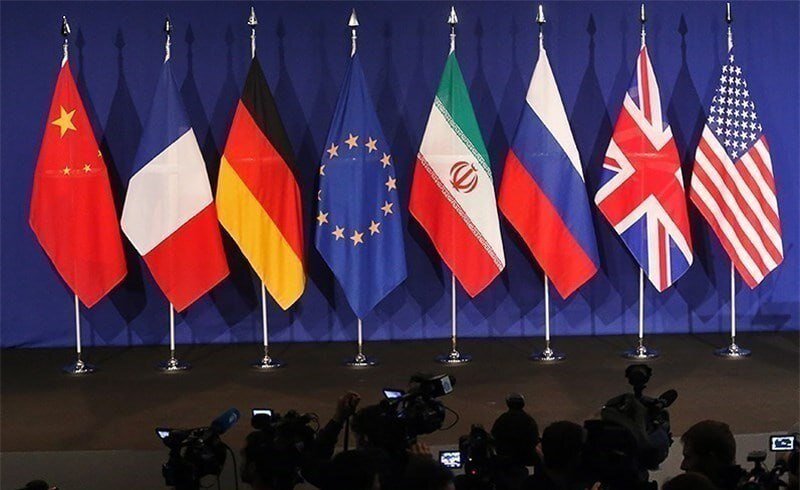The sunset of the JCPOA in the twilight of distrust in Western diplomacy
Resolution 2231 officially expires, ending UN endorsement of the 2015 Iran nuclear deal

TEHRAN – The jubilant crowds that gave then-Iranian Foreign Minister Javad Zarif a hero’s welcome in April 2015 as his flight landed in Tehran from Switzerland were cheering what they believed was the dawn of a new era for Iran.
“We will see progress in every field,” said Fatemeh, a Tehrani resident, to an Iranian reporter at the airport while waiting for Zarif's arrival. “I recently became a high-school teacher. I am so happy that my students will not have to deal with the economic pressures my generation did.”
Fatemeh, a millennial, spent the early years of her life during the difficult Iran-Iraq War. In the post-war period, Iran's reconstruction and development were slower than desired, hampered by renewed pressures related to its nuclear program.
The first comprehensive, multilateral sanctions targeting Iran's nuclear program emerged in 2006. In the following years, these sanctions became increasingly debilitating as Western powers accused Iran of pursuing nuclear weapons. In 2013, Iran, Germany, France, Britain, the U.S., China, and Russia convened for a series of talks that lasted 18 months, culminating in the signing of the Joint Comprehensive Plan of Action (JCPOA). The agreement stipulated that Iran would limit its nuclear activities in exchange for the removal of sanctions imposed by Western states, which had significantly deteriorated the Iranian economy and strained the population's finances over the years.
However, the deal celebrated by Iranians in 2015 ultimately proved to be not a harbinger of relief and development, but the prelude to an unprecedented campaign of pressure against the nation. When U.S. President Donald Trump withdrew from the JCPOA in 2018, expressing his desire to eliminate any form of Iranian nuclear capability and to impose caps on the country’s missile program, he reimposed sanctions against Iran, introduced new secondary ones, and officially began what he called the “maximum pressure” campaign against the county. Over the years, the so-called maximum pressure managed to leave many Iranians, particularly those in the middle class, struggling financially, with conditions worsening monthly. Teachers like Fatemeh saw their social standing decline as sanctions fueled rampant inflation and significantly shrank the middle class.
Beyond the economic pressure, a full-scale war was likely the last thing on Fatemeh’s mind the day she greeted Zarif at the airport. Yet, following Trump’s withdrawal and after Iran held multiple rounds of talks with various American and European politicians in a bid to revive the JCPOA, the country was attacked for not bending entirely to the West’s will. The U.S.-Israeli bombs that struck Iran for 12 days in June 2025, targeting the country’s nuclear, civilian, and military infrastructure, occurred just ahead of a scheduled sixth round of negotiations with Washington.
After the war, the dead body of the JCPOA took even more hits. The E3 officially triggered the so-called snapback mechanism in late August, designed to return pre-JCPOA UN sanctions a month after its activation. The snapback was supposed to be a mechanism that allowed non-Iranian signatories to return pressure against Tehran if they deemed it as noncompliant. Iranians, having gained from the JCPOA only unprecedented sanctions and a full-on war that battered their nuclear sites, saw the return of UN sanctions not as a disaster, but as yet another sign that the West could not be trusted to uphold its commitments.
I was unable to locate and reach Fatemeh as Resolution 2231 (the UN bill that endorsed JPOCA) expired on Saturday, October 18, 2025. However, I suspect that had I been able to speak with her, she would no longer believe in diplomacy as strongly as she did in 2015, like millions of Iranians who believe they have been played and betrayed by the West over the past decade.
In a letter to Antonio Guterres, the United Nations Secretary-General, and Vassily Nebenzia, the rotating President of the Security Council, Iranian President Abbas Araghchi—Zarif’s deputy at the time of the JCPOA's signing—stated that with the expiration of Resolution 2231, Iran must now be treated like any other non-nuclear-weapon state under the Nuclear Non-Proliferation Treaty (NPT). Mikhail Ulyanov, the Russian negotiator in JCPOA talks, declared that the pact "has ceased to exist" in a statement posted on X.
Considering what Araghchi described in his letter as "acts of sabotage and aggression" by the West over the past decade, and with no new negotiations over Iran’s nuclear program in sight, it appears that not only is the JCPOA dead, but also confidence in diplomacy.
Leave a Comment